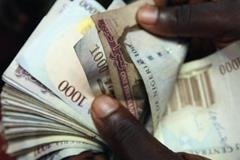By Rofhiwa Madzena
Despite growth of 5.9 per cent; Nigeria is one of ten countries in the world with the highest number of extremely poor people.
The growth of the Nigerian economy does not mean that the country’s citizens are experiencing better livelihoods.

Africa biggest economy, Nigeria’s growth domestic product (GDP) grew by 5.9 per cent in its fourth quarter a slight decline on the 6.2 per cent achieved in the previous three months.
So what exactly is meant by growth particularly in the context of a country’s growth? What sectors are affected and in what manner are its people affected?
Despite increasing growth there are still challenges to prosperity in the Nigerian society.
Poverty is still rife; there are high levels of unemployment and inequality as well as the contentious issue of corruption within the Nigerian government. Speaking at an interactive session with the Lagos State Governor’s Office Correspondents (LAGOCO) last week, governor of Lagos State, Babatunde Fashola said corruption in the state was “multi-faceted” with theft being the worst part of the practice.
The World Bank lists Nigeria as one of six countries in Africa and one of 10 in the world with the highest number of extremely poor people.
President of the World Bank, Jim Yong Kim describes the term “extremely poor” as people living on less than US$1.25 a day.
In Nigeria, US$1 a day could buy one loaf of white bread while 89 per cent of the population is dependent on a single bread winner. This means that without this individual, 89 per cent of the population are left without food. This is substantial, considering only 51 million people in Nigeria are employed out of a population of over 177 million.
This implies that Nigeria’s growth has had a minimal positive impact on the country’s people.
Source: CNBC


Leave a Reply